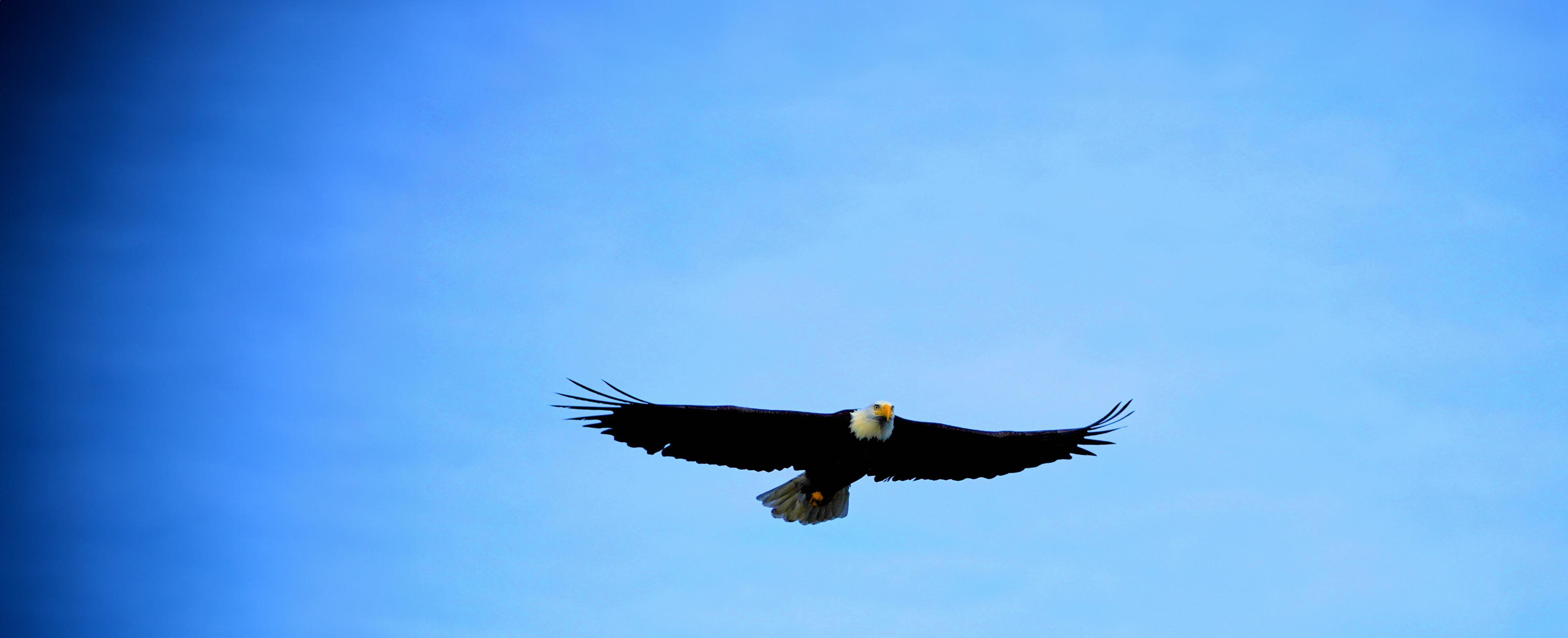
American Silver Eagle
Over one half billion Silver American Eagle coins have been purchased by bullion coin buyers and silver investors worldwide, making them the most popular silver bullion coins in the world. Demand-based production ensures that bullion investors and collectors have access to as many of the coveted coins as they can buy.
Sort By
View
Sort By
5 products
View
About American Silver Eagle Coins
Legislative History of the American Silver Eagle
To reduce the National Defense Stockpile of silver without depressing the price of silver, Congress chose to issue silver coins annually. President Reagan signed the Liberty Coin Act in 1985 and the American Silver Eagle Coin has been the official silver bullion coin of the United States since the first coin was struck by the United States Mint in 1986.
Are Silver Eagles Legal Tender?
The face value of the American Silver Eagle is one dollar. It is legal tender for all public and private debts at its face value. These silver bullion coins are eligible for use in Individual Retirement Account investments and tax deferred long-term retirement savings; they are also currently exempt from IRS 1099B silver dealer reporting requirements within the USA. Contact your tax advisor for information about associated capital gains or losses.
American Silver Eagle Design
The beautiful design of the American Silver Eagle has assuredly contributed to the coin’s popularity; indeed, it is arguably the most beloved coin in the United States. Since the Silver Eagle’s creation, the artwork on the obverse of the coin has been modeled after sculptor Adolph A. Weinman’s Heraldic “Walking Liberty” design, which originally appeared on the United States’ first half-dollar that circulated from 1916 to 1947.
The graceful form of Lady Liberty strides toward sunrise with her right arm outstretched confidently. In her left arm, she carries laurel and oak branches, which symbolize both civil and military glory. She is draped in the Stars and Stripes, and the flag billows around her in the breeze. Close inspection reveals Weinman’s initials on the hem of Lady Liberty’s gown.
The word “Liberty” boldly encircles the top of the coin and the mint year is displayed at the bottom center. The phrase, “In God We Trust,” is placed toward the lower right of the coin.
Obverse Inscriptions
The Mintage Year
"Liberty"
"In God We Trust"
The Coin’s Reverse
The reverse of the coin, designed by American sculptor and engraver John M. Mercanti, features a majestic bald eagle with a shielded chest. He proudly displays his wingspan, while gripping an olive branch in his right talon and arrows in his left. Thirteen stars are located above the eagle in the representation of the thirteen colonies. In his beak, the eagle grasps a banner bearing the motto, “E Pluribus Unum” (“Out of Many, One”).
Reverse Inscriptions
“United States of America” at the top
“1 Oz. Fine Silver”
“One Dollar” at the bottom
Minting History and Distribution
Although the Silver Eagle bullion coin lacks a mint mark, it has been produced by the Philadelphia Mint, the San Francisco Mint, and the West Point Mint.
The United States Mint does not sell American Silver Eagles directly to the public; instead, they are minted based upon demand and sold to authorized distributors in bulk, then to secondary retailers who offer them to the public. Therefore, the purchase and sale of these Silver Eagle Coins within the USA are very private.
Silver American Eagle Specifications
The Silver Eagle exists exclusively in the 1 oz. denomination and contains one troy ounce of .999 pure silver. To increase durability, a trace amount of copper is included in the bullion coin (99.93% silver, 0.07% copper). The Silver Eagle’s purity, weight, and content are guaranteed by the United States Government and certified by the United States Mint.
Each Silver Eagle bullion coin is 40.6 mm in diameter and 2.98 mm thick.
Strike Types and Surface Varieties of the American Eagle Silver Dollar
The US mint issued coins for 200 years with just two types of surfaces: a business strike and a proof strike. Coins with a business strike are produced for normal commerce and general circulation. These are the coins carried by individuals and spent for every day purchases. Proof strike coins are prepared yearly with special dies.
Modern minting processes offer many more options for striking coins; there are, therefore, quite a few varieties of surface characteristics in American Silver Eagles available today.
Bullion Strike
Proof
Burnished
Reverse Proof
Enhanced Uncirculated
Bullion Strike - Bullion Strike or business strike. The majority of the Eagles produced are made with standard dies. The coin has a uniform, non-mirror-like surface. Depending on its condition, the coin is designated as either mint state, uncirculated, or circulated.
Proof - Proof coins are made with specially prepared dies and are recognized by their mirror-like surfaces. Most modern (after 1970) proof coins produced by the mint have frosted devices; that is, the raised surfaces of the coin appear to have a non-reflective or “frosted” texture. The flat surfaces of the coin are called the field; the fields of proof coins have a mirror-like surface.
Burnished - In 2006 the Mint introduced burnished planchets for the 2006-W American Silver Eagle. A planchet is the piece of blank metal that the coin is struck upon. The surface characteristics of burnished coin and a regular bullion strike coin are virtually indistinguishable. The “W” mint mark on the reverse of the coin (left of the eagle’s tail) distinguishes the burnished coin from the bullion strike.
Reverse Proof - The Mint introduced the reverse proof as a part of the 20th Anniversary Silver Eagle Set in 2006. The word “Reverse” is not on the reverse side of the coin (back of coin); instead, the design on the obverse (front of coin) is in proof condition. In a normal proof coin, the field or background has a mirror-like surface and the raised surfaces (legends, lady Liberty, and the eagle) are frosted. In the reverse proof coin, the raised surfaces are mirror-like while the flat surfaces are frosted. This process creates a strikingly distinctive design from the regular proof coins.
Enhanced Uncirculated - In 2013 the U.S. Mint introduced a new minting process for the American Silver Eagle designated Enhanced Uncirculated. In this new format, three types of finishes were introduced on the same coin.
On the obverse, the date, Liberty’s gown, and part of the mountains have a brilliant mirrored finish. On the reverse, part of the eagle has the mirror-like surface. The fields (flat surface) on both sides of the coin have a lightly frosted finish. The remainder of the designs on both the obverse and reverse of the coin have a heavily frosted finish.
The minting process to create the distinctive coin finish for the enhanced uncirculated coin requires many steps.

Why Us?

Ships in 3 Days or Less
Upon receipt of payment.

No Order Minimum
We place no restriction order size.

Free Shipping on All Orders
We ship all orders within 3 business days of receipt of cleared payment.


Need help in choosing the best option?
Our specialists are here to help you choose the best products for your needs.
